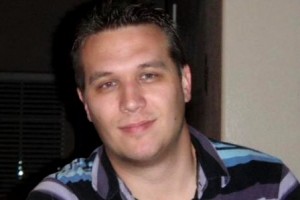Nathan Miles
BMW AG, Forschungs- und Innovationszentrum (FIZ)
Dept. of Component Operational Strength Testing
Education and qualifications
- A.S. in Computer Aided Design, Engineering Graphics
- 3 years of experience as a 3D-Designer (mechanical) at an R&D firm
- Only one class left until my Bachelors in International Economics is finished
- 1 year of high school German. 3 years of college German. Zertifikat Deutsch B1
- A lifetime as an auto enthusiast!
Describe a typical day on the job.
On any given day, I could be doing one of many different functions for R&D. Some days I will spend entirely behind my desk doing statistical analysis. Others, I will not even come into the office, but will instead spend the whole day in our testing bays or at a partner company’s facilities. At times, I will be responsible for organizing the work of several technicians, and others, I will be the only one performing a test.  In any given week, I probably spend 40% of my time planning, 10% doing, and 40% analyzing. As an intern, I am also expected to learn the theory behind every testing project, so there is a lot of brief but thorough study that is squeezed in as well.
How do you use German?
I use German in literally every aspect of my job. From the minute that I leave home in the morning, until I go home at the end of the day, every word is Deutsch. Although most of the engineers in our office understand English, every day I must deal directly with the mechanics and technicians who work in our testing centers. Many of them speak no English at all, and some of them speak it only poorly.  I am also usually the de-facto translator for tough English terms and technical expressions for my colleagues.
Outside of work, I try to use German as much as possible also. Â In Munich, you can survive on English, but you can get things done much more effectively if you speak a little bit of the language.Â
What are the advantages and disadvantages of your job?
My job is very much like an apprenticeship, so I get tons of background info before starting anything. The engineers that I work with are passionate about their job, and it really shows when they start explaining or demonstrating a concept. The FIZ is the heart of BMW’s research and development, and I have the opportunity to use the very best tools, computer programs, and techniques available.   I also get to see the coolest processes in automotive development, up close and personal. By the end of my 2nd month, I had gotten to watch a motorcycle crash test, be in the pits at the running of one of the McLaren F1 WBG cars, and help re-design a machine to test Formula 1 parts.
It is unfortunate that my internship is not paid just a little bit better. Munich is an expensive town, and there is so much to see and do here.  Working for multiple engineers can be frustrating sometimes, although they try very hard not to spread me too thin.   Like any job, where your work has a direct impact on others, there is a certain amount of stress that nothing can completely take away.  Interns at BMW get lots of help at every step, but at the end of the day we are still responsible for our part of a project. So the stress level is there. You can sometimes replace the word “stress†with “excitement,†though, cause on a good day, that’s what it feels like instead.
Do you have any advice for someone who would like to enter your field?
Germany is the largest exporter in the world (That’s right! In 2008 they topped China!), and the list of German-owned companies operating in the U.S. is huge.  I speak from prior experience when I say that the likelihood of having a German supplier or partner company, when working for a U.S. engineering firm is almost assured. Even though they usually have English documentation, it is a major advantage for your company if you can read their original documents, or better yet… communicate directly with their engineers and technicians.  So the idea that you can only use your German training if you are actually working in Germany is utterly false.
In Germany, it is also very common for engineers to be promoted into the role of manager, and there is an ever-increasing need for individuals with “soft-skills†and other traditionally management-related abilities. As an engineering student, the more you are (or will be) exposed to international projects, the more you should consider adding management, economics, HR, logistics, or statistics to your studies. I have already used my statistical background more times than I can count.
